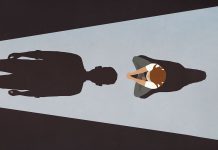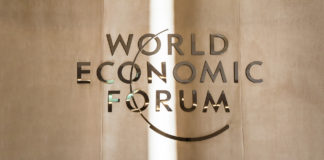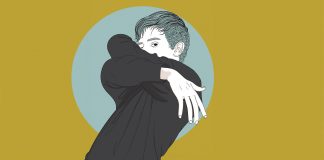Memory training: The allies we have in the fight against forgetfulness
Memory training is often the only difference between people with impressive memorization skills and those with average memory, researchers suggest. However, the long-term results intersect with a healthy life and learning style.
Being your best you
A week before he left for college, megachurch pastor Steven Furtick’s oldest son asked him, “Out of everything you’ve taught me, what’s the best advice you can give me right now?”
The culture of disasters
Over the last 25 years, the relationship between theology and natural disasters has undergone intense scrutiny, with its consequences becoming increasingly apparent as disasters have remained a key public interest.
The Great Reset: a revolution that has been proposed before
Every January, economic and governmental elites gather in their hundreds in Davos, the exclusive ski resort in Switzerland, where the World Economic Forum holds its annual high-level meeting. This year, because of the pandemic, the in-person meeting had to be rescheduled. But the controversies surrounding the meeting's theme – The Great Reset – were not postponed.
Friendship, through the eyes of a grandparent
In the search for deeper meanings of interpersonal relationships, we have discovered the life stories of simple, dignified people, willing to share from the abundance of their joy. Thus, these are the seasons of friendship, through the eyes of special grandparents.
How you can get your sense of smell back after a cold
A recent study showed how we can fully restore our olfactory sense after a cold, during which nasal constriction prevents us from smelling even the most intense smells.
The fight against Alzheimer’s: a fight for the moment
"It isn't the man I married. It isn't the man I knew." This is how Sabina Shalom, whose husband was diagnosed with Alzheimer's disease, begins her confession. The woman, who has reached a respectable age, says that it all started with some serious quarrels between her and her husband: "Papers were lost, bills were not getting paid."
What could light up our hope in times of war?
We know how to do normal things in peacetime, but how do we keep our life going and maintain our hope in times of war?
The Christian pursuit of happiness
Humanity has not only reimagined God but has also redefined its expectations. Among Christians, many believe happiness is a promise made by God Himself. But what if this pursuit is nothing more than a chase after illusions?
Integrity deficit disorder
"Integrity without knowledge is weak and useless, and knowledge without integrity is dangerous and dreadful"—Samuel Johnson.
How to love hard-to-love parents
How much do we know about love? Enough to understand that love is not an obligation—we cannot love by force, nor be loved in this way.
DNA: the language of chance, or of the Creator?
Scientific progress in understanding the DNA molecule and in deciphering the molecular mechanisms by which cells function can only be described as revolutionary. In the first of our "Genetics and Evolution" series of articles we examine the implications of these discoveries for evolutionary and creationist perspectives on the origin of life.
Rest through faith—a form of countercultural resistance
"Hi, Alina! I hope you had a productive weekend" was the opening line of an email that, to me, encapsulated a whole misguided philosophy of life.
Adolescence: a generational Tower of Babel
Adolescence is not a series to watch with your teenage child, but it is a series that may cause mature viewers to re-evaluate their relationship with their own children, as well as their relationship with their parents.
The immortal Bible
"Scripture" is a Latin word that means "writings", while "Bible" is a neutral Greek plural meaning "books" (from biblíon = book, document, scroll). Today, however, in all languages, the word "Bible" is understood as a feminine singular, meaning Holy Scripture.


























